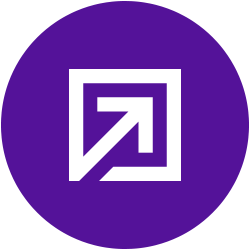Storytelling is an ancient art form. For centuries, it has been used to educate and ensure real-life tales of human triumph are preserved for centuries. In business, storytelling is often the marketer’s job – the creatives charged with promoting the brand in a way that connects with the audience and makes it more human, relatable, and memorable. However, storytelling is as important a skill for pharmaceutical medical teams as it is for marketers…maybe even more so.
Medical teams today have an opportunity to evolve the scientific exchange through storytelling – an unpracticed but critical skill, especially in today’s complex healthcare environment. Facts and data alone are not enough to capture and hold the attention of the busiest physicians worldwide. These doctors are pulled in various directions to deliver care, manage practices, give presentations, publish articles, and run trials. To draw their attention, MSLs must learn how to contextualize scientific and clinical data and communicate it in a meaningful, engaging narrative – that’s also how to make lasting connections.
How do you take medical information and translate that data into a story that’s compelling? Start with knowing your audience. This allows MSLs to provide the right context – geared towards their audience’s top priorities. Today, we have the advantage of multiple sources of information to uncover unique insights about experts and physicians, but that’s not enough. Leverage your professional network, read physicians’ papers and presentations, learn their research interests, ask what their biggest challenges are, and learn their areas of passion.
Equally important, particularly in today’s healthcare environment, MSLs must do the investigative work to find out who or what else influences physicians’ treatment decisions. Talk to their staff, other practice providers they work with, fellows, the chief of the department, and health system executives. Leverage all sources to map out and then triangulate those influencers to understand who they are and what they need. Speak to those needs, and incorporate them in your medical narrative for a conversation that is directly relevant to the individual healthcare professional. In other words, expand your thinking beyond the science to understand today’s healthcare ecosystem – and how your product fits to bring the greatest benefit to doctors and patients.
Once you’ve fully characterized your audience and know who and what else influences their decisions, incorporate the insights that can be efficiently mined with modern data analytics. Advances in data analytics will help drive predictive modeling and “next best action” support. This makes it important for MSLs to learn how to incorporate this type of data into their engagement plans. It requires business acumen, which may not be innate or part of our previous experience. It’s one thing to have a modern technology system telling an MSL who to reach out to next using which channel. But, it’s altogether different to bring together all of data points and personal networks into a long-term, multi-pronged engagement strategy. It’s a unique blend of human connection, personal communication, and tailored information.
Still, many medical affairs professionals think linearly and “in the moment” rather than holistically about how to connect with customers. We think about what we are going to talk about in the next conversation rather than thinking like a chess player who looks two or three steps ahead. It’s about communicating in a way that is meaningful to the physician and the people that they rely on to treat patients. The more information MSLs have, the more valuable our engagements with physicians and the easier to establish a long-term, trusted relationship.
Creating a connection and consciously considering how to share data in an engaging way isn’t something that comes naturally for everyone. Yet, it can be learned, and can make all the difference – not just in our interactions but in our job satisfaction. Just like our ancient ancestors understood: storytelling is a powerful way to educate other people and make that human connection. Give it a try.




